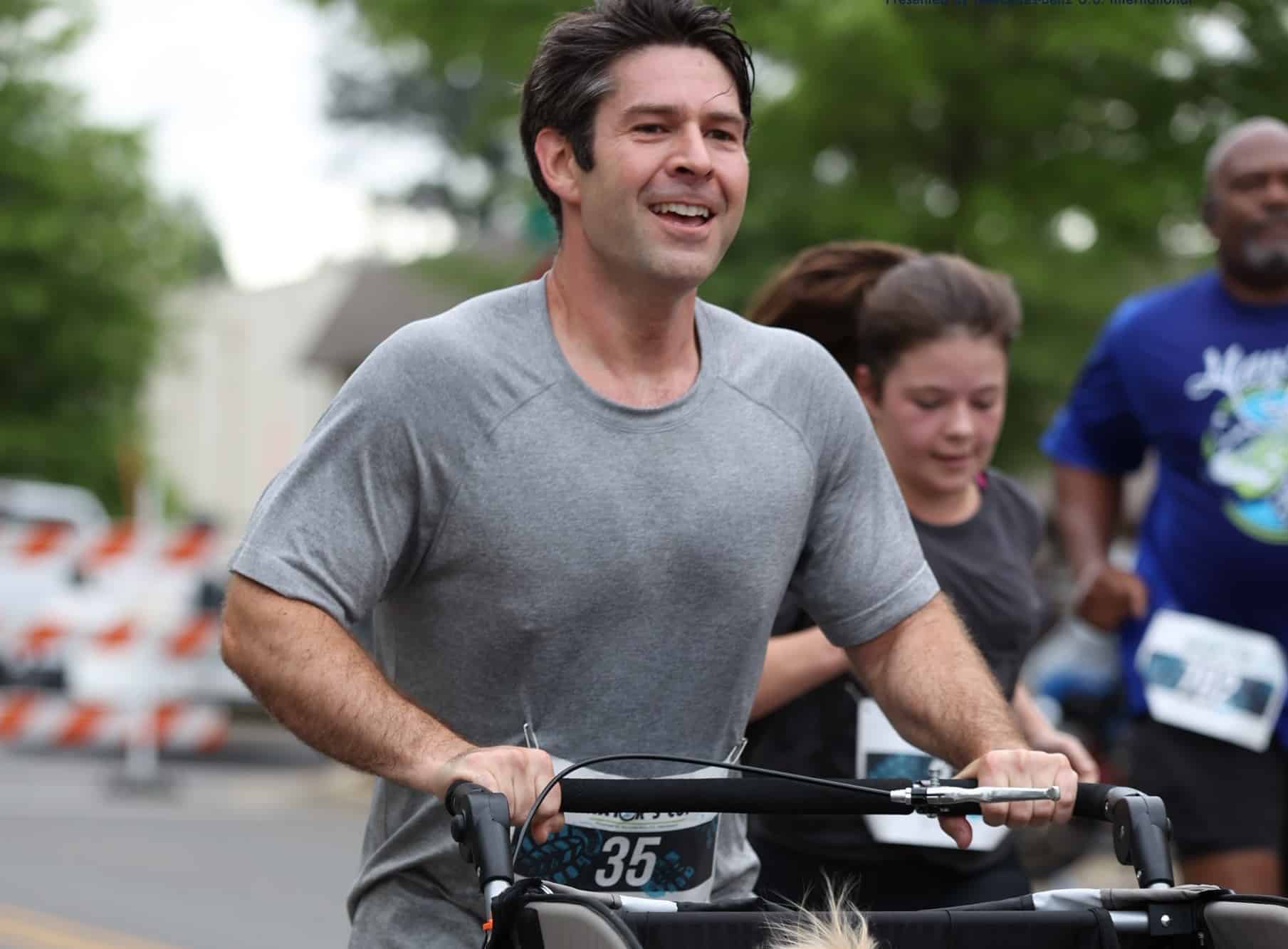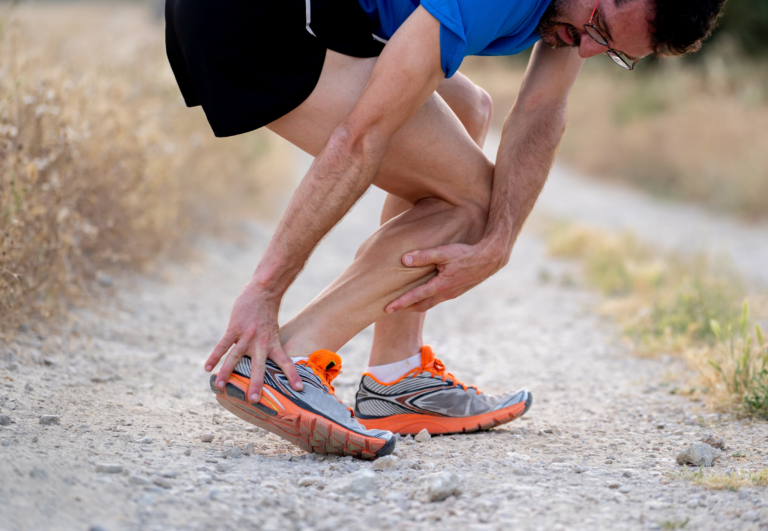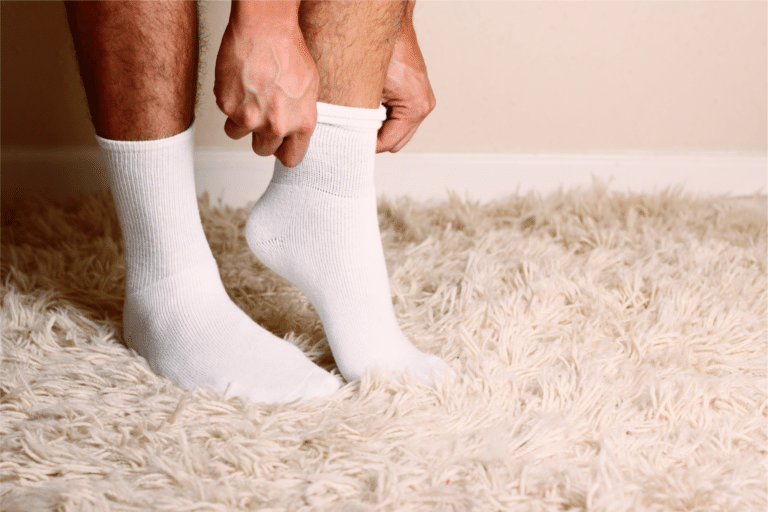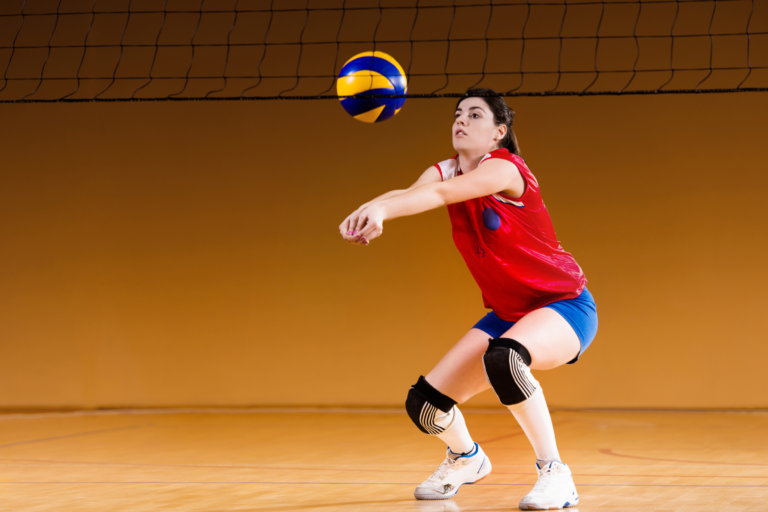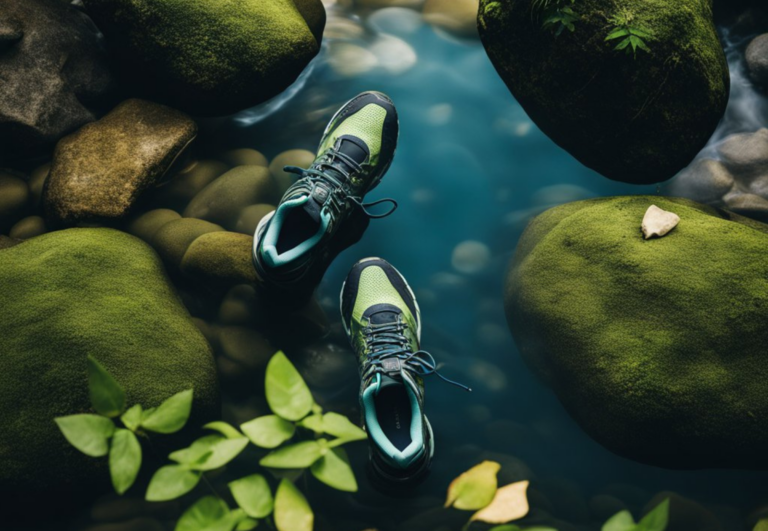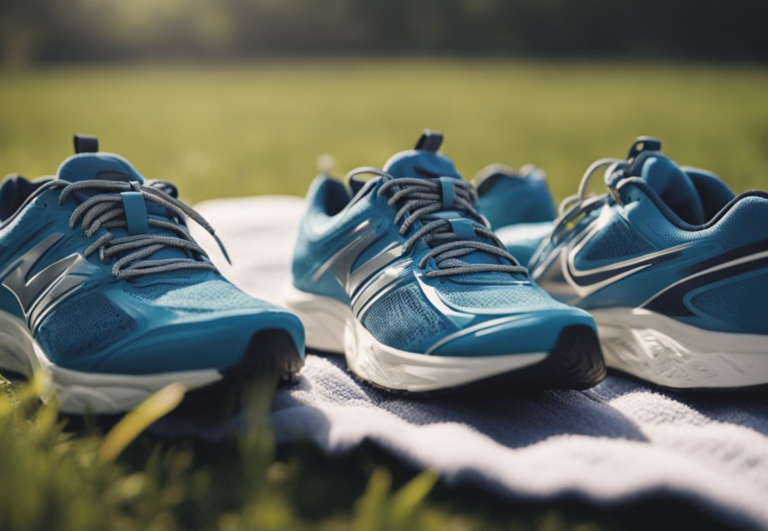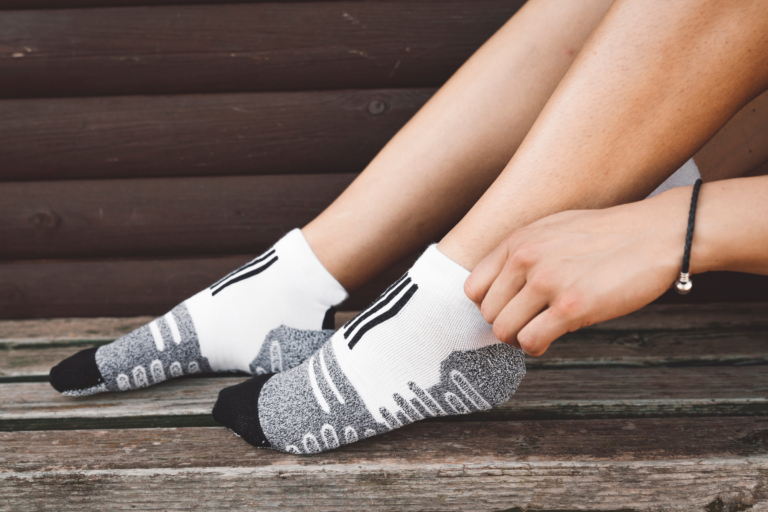Why Do My Running Shoes Smell So Bad? (5 Proven Cleaning Methods)
A runner’s worst nightmare is a smelly pair of shoes! The smell lingers and then your feet stink too. But why do running shoes start to stink so quickly? How can runners deep clean their shoes to get them smelling fresh again?
Your running shoes probably smell bad from bacterial growth and organic acids that result from sweat, trapped water, and other moisture retention. To resolve this smell, the best course of action is to clean your shoes with either baking soda or white vinegar. To prevent smelly shoes, be sure to clean both your feet and shoes regularly.
Read on to learn about why running shoes stink, how to clean running shoes to eliminate odors, and different preventative measures to keep smells away in the first place.
Why your running shoes smell so bad
I have friends with running shoes that have a less-than-favorable odor, and let me tell you: one whiff of those will put you down for the count. Point is, it’s unpleasant for yourself and those around you to have smelly running gear. But why does it happen?
A large part of smelly shoes originates from the owner of the shoes. Stinky feet often result in stinky shoes!
However, even runners who aren’t condemned to having smelly feet may still find a potent odor arising from their shoes. Why exactly is this?
The main culprit behind the putrid smell of your running shoes is stinky bacteria that reside all over the shoe. This can come from a variety of avenues, most commonly from sweaty feet, but also possibly from water or dirt trapped under the insole.
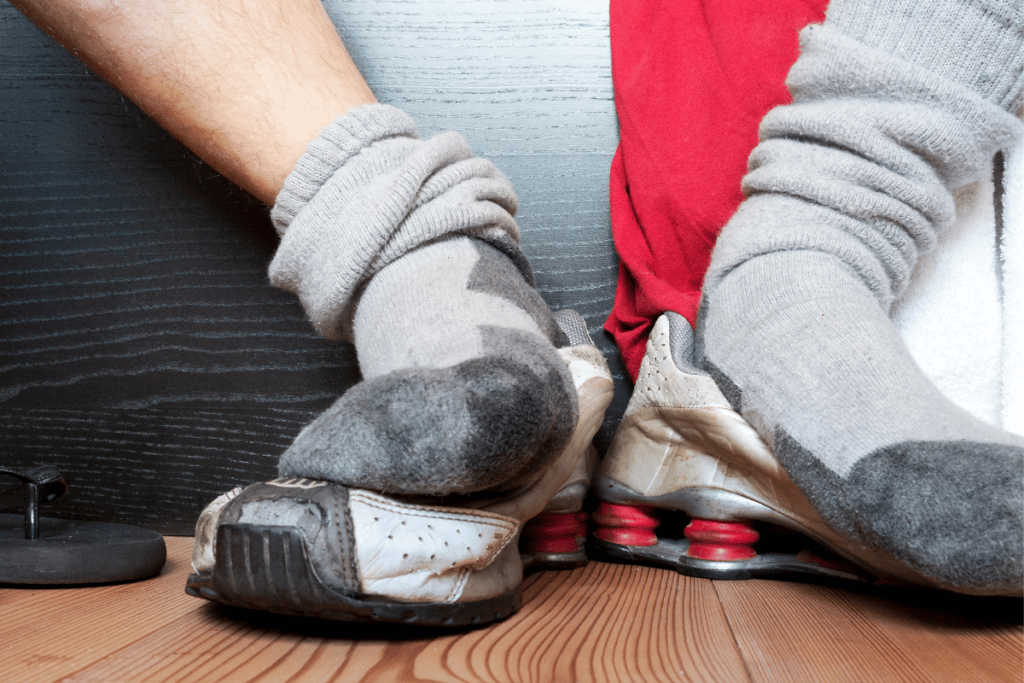
It’s funny; we think smelly shoes come from the beating we put through them – after all, trail runs often leave shoes in a disgusting state, caked with mud and all sorts of junk – but that’s not really the case.
It turns out that dirt and grass aren’t the primary reason for smelly running shoes: bacteria are.
Your feet actually have the most sweat glands out of anywhere on your entire body – 125,000 per foot! The sweat itself doesn’t smell too terrible, but the bacteria will fester until it is unbearable.
The bacteria enabled by sweat eventually begin to eat at and dispose of your dead skin cells in the form of organic acids. These organic acids give off the smell we all know and hate.
To make matters worse, water and dirt trapped inside or on the outer portion of the shoe also make a good breeding ground for bacteria and fungus.
To top things off, shoes can also smell bad if you’re lucky enough to step in a smelly substance such as dog poop.
Insole
Have you ever been asked to smell the inside of a shoe? When I was younger, I didn’t recognize the grave mistake I made by saying yes.
Why in the world do insoles smell so bad?
Insoles cause running shoes to develop bad odors because of their ability to trap moisture and therefore grow bacteria. The insole of a shoe is susceptible to sweat from feet, trapped water, and extra grime from a day’s activity.
Sweaty feet are the number one cause of smelly running shoes. Some people are just unlucky because they have smelly feet, but all runners are susceptible to this struggle.
Sweaty feet result in large quantities of bacteria breeding inside of the shoe; in turn, these bacteria produce organic acids that smell akin to rotted eggs or a skunk. Not good!
The other main issue with insoles is trapped water. This coincides with the theme of excessive moisture inside the shoe. Just as with sweat, water in the insole also helps bacteria grow and live in the shoe.
The “rotten eggs” smell is consistent with water as well. The presence of sulfur bacteria that develops in the water causes this smell, and it’s actually why sweaty feet produce that odor as well.
For these reasons, it can be a challenge to discern what the root of the smell is. Luckily, the method for preventing odors or cleaning and getting rid of odors is the same no matter what.
Upper
While the inner portion of the shoe is subject to copious amounts of bacteria, what about the upper or outer portion of your running shoes?
Do they contribute to smelly odors as well?
The upper portion of running shoes creates smelly odors indirectly. It is unlikely that any mud or grass will make the shoes stink. However, the breathability of the material of the upper is crucial. Breathable shoes help prevent bacteria, while less breathable shoes will only promote bacterial growth.
Aside from the potential of stepping in poop or some other smelly substance, the upper or outer portion of your running shoes is relatively safe from being super smelly. That being said, your upper can actually contribute to the smelliness of the inside of your shoes.
It all comes down to what material your running shoes are made of. Shoes that are made of mesh should be much less smelly than those crafted with synthetic leather.
As a general rule of thumb, bacteria grow best in damp environments. The insoles can dry out quickly and effectively offset previous moisture retention by wearing breathable shoes.
How to clean stinky running shoes – 5 methods
There’s nothing worse than a pair of smelly running shoes! The damage can feel irreparable, the stench fatal.
For those in need of a remedy, rest assured there are plenty.
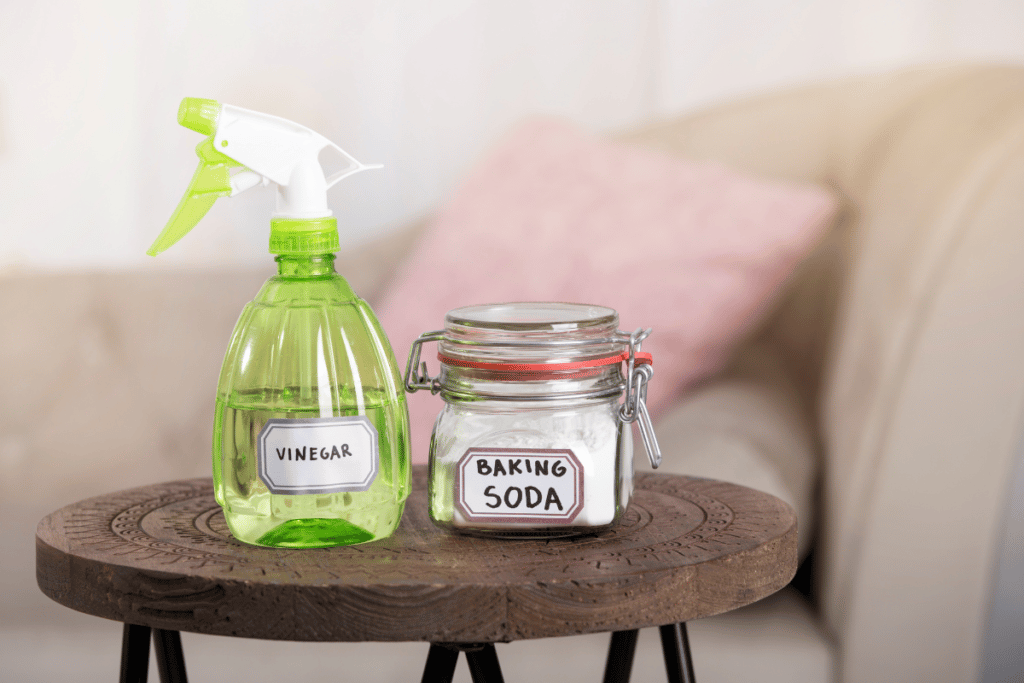
Smelly running shoes can be cleaned in a variety of ways, with the most effective being a deep clean using either baking soda or white vinegar; both of these ingredients neutralize odors and leave running shoes smelling good as new. You can clean smelly run shoes with:
- Baking soda
- White vinegar + water
- Washing machine
- Bar soap
- Essential oils
In my experience, baking soda and vinegar are the most effective options, but let’s look at them all so you can find the best option for ridding your shoes of that stank!
Baking soda
Baking soda, while a bit labor-intensive, is an excellent way to clean and rid your running shoes of odor.
Odor most often stems from bacterial growth in the shoe that produces abrasive-smelling organic acids. Baking soda works to neutralize these acids, eliminating the smell.
Baking soda is inexpensive as well, making it an easy and effective choice for cleaning your running shoes.
Supplies needed
To clean your running shoes with baking soda, you’ll need:
- Baking soda – Either the kind you use for cookies or the kind that comes in a big bag will work for this – while they may be marketed differently, baking soda marked “pure” is good for either use.
- Water – Just plain old H2O!
- Scrub brush or toothbrush – I like to drop by my local dollar store (well, $1.25 store now) occasionally and pick up a pack of cheapo toothbrushes just for cleaning.
- Gallon-size plastic bag – Again, I go for the cheapies here. We’re not trying to hold in water or keep things freezer-tight so you don’t need to break the bank on a brand name.
Make a paste
Mix 1 tablespoon of baking soda with a 1/2 tablespoon of warm water in a small bowl. Stir these two ingredients together until a paste has formed.
Coat your insoles and let them sit
Remove your insoles and place them in a gallon-size plastic bag with enough baking soda to coat the insoles. Let the insoles rest in the bag overnight.
Scrub the outer
Using the scrub brush or toothbrush, liberally apply the baking soda/water paste to the outer portion of the shoe.
Rinse the outer
Let the baking soda/water paste dry onto the shoe. After a minimum of 30 minutes, rinse the shoes with water.
Airdry
Allow the shoes ample time to air-dry by leaving them out overnight.
Replace insoles
Remove the insoles from the bag and shake them out to remove the excess baking soda. Reinsert the insoles into the shoes and good as new!
Vinegar + water
White vinegar is an easy and inexpensive way to remove smelly odors from running shoes.
When odors from stinky bacteria arise, spritzing your running shoes with diluted white vinegar is great for neutralizing the odor.
White vinegar is a neutralizer because of its acetic acid content; it kills bacteria and mildew, subsequently eliminating odors.
Supplies needed
Spritzing your shoes with vinegar is one of the easiest ways to clean your shoes because chances are good you already have vinegar in your kitchen.
To clean your running shoes with white vinegar, you’ll need:
- White vinegar – This isn’t the same vinegar you might use for descaling your dishwasher. Cleaning vinegar is a 6% solution; you want to use the 5% kind you cook with to avoid damaging your shoes. (That means you’ll want this vinegar, not this one.)
- Water – Yep, just plain water.
- Spritz bottle – This will be used for spraying the vinegar solution. You can usually pick up an inexpensive spray bottle at the grocery store or your trusty dollar store.
- Baking soda (optional) – For best results with this method, you’ll want to pair an exterior vinegar cleaning with the baking soda method for your insoles.
- Gallon-size plastic bag (optional) – You’ll be using this alongside the baking soda to freshen up your insoles.
Create a cleaning solution
Measure out equal parts of white vinegar and water into your spritz bottle. I go for a cup of each and keep the spray bottle ready between uses.
Remove insoles and apply baking soda (optional)
While optional, for best results, remove the insoles and toss them in a gallon-size plastic bag with enough baking soda to coat the insoles. Let them rest overnight.
Spray liberally with vinegar solution
Liberally spray the shoe with the white vinegar/water mix. Make sure to spray both the inside and the outside of the shoe.
Reinsert the insole
Allow time for the shoes to air-dry, and then reinsert the insoles.
Washing machine
Runners in a time crunch may opt for the washing machine over all other methods.
While it will reduce odors, running shoes are susceptible to getting damaged in the wash. To avoid these issues, always remove your insoles and shoelaces and wash the shoes on the gentle cycle setting with cold water.
Cleaning your shoes with a washing machine is effective, but maybe not the safest way to clean your shoes.
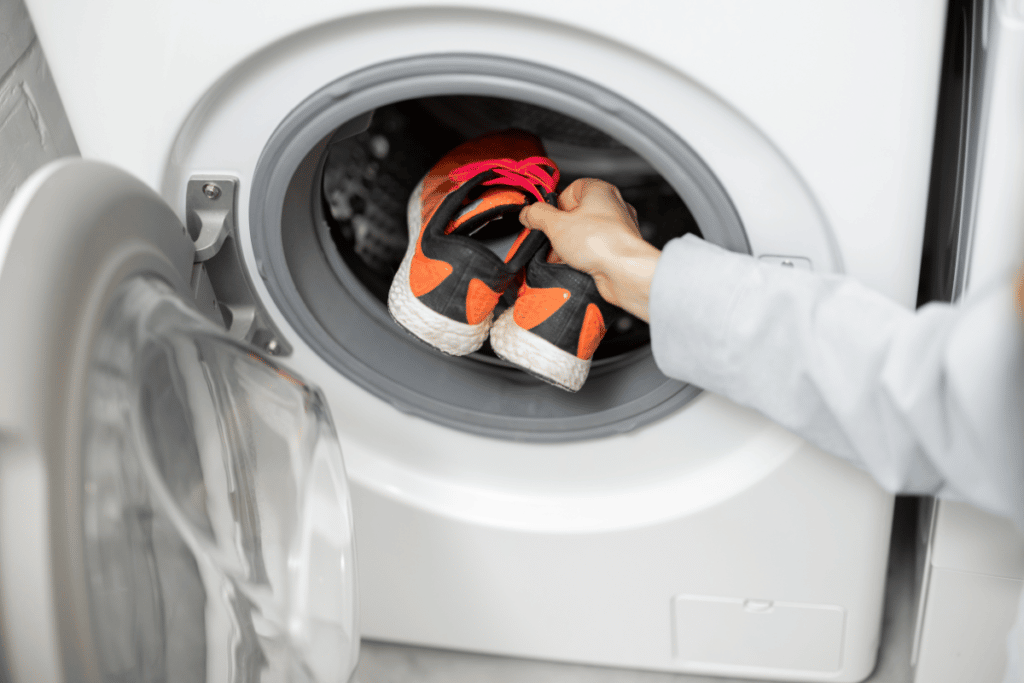
Supplies needed
Before washing your shoes in the washing machine, you should check the materials. For example, leather should never be run through the washing machine.
Washing your shoes in the washer is fairly straightforward, but let’s go over what you’ll need:
- Washer – Probably not a surprise, but you’ll need access to one to wash your shoes in a washing machine.
- Detergent – Chances are good that you can use your regular detergent here. The only caveat is that liquid detergent is better than powder because there’s a chance the powdered detergent won’t dissolve properly if it gets caught inside the shoe.
- Toothbrush – In case you need to scrub away some dirt or debris.
- Baking soda (optional) – Your insoles aren’t washing machine friendly, so you’ll want to clean those separately using the methods outlined above.
For more information, check out our comprehensive guide on how to get your running shoes squeaky clean with a washing machine!
Bar soap
Using bar soap is a bit unconventional but just as effective as the other options on our list. Luckily, it’s probably the least intensive way to mask or remove the odors arising from your running shoes.
It’s as easy as placing a bar of soap inside your shoes!
Supplies needed
All you’ll need for this method is two bars of soap.
Buy scented bar soap
Find a scented bar soap that you prefer.
Put soap in shoes
Place one bar of soap into each of your running sneakers.
Allow to sit
Allow the bars of soap to rest in the shoes overnight, soaking up odors and leaving behind a fresh sneaker.
Remove the soap
Remove the bars of soap and you’re good to go!
In theory, these soaps are good to use, but I think keeping a couple of “shoe soaps” around is preferable to washing with them after this process.
Essentials oils
A similarity shared by many cleaning methods is the ability to kill bacteria. Cleaning your shoes with essential oils is no different.
Certain essential oils are great for cleaning shoes because they naturally reduce smells through anti-fungal properties. In other words, they kill and prevent any further growth of bacteria.
Also, essential oils come in many different scents for runners to choose from too!
Supplies needed
When cleaning your shoes with essential oils, you’ll want to choose a high-quality oil with anti-fungal properties.
To clean your shoes with essential oils, you’ll need:
- Essential oil – Not all essential oils are created equal. You want one with anti-fungal properties, including citronella, geranium, lemongrass, eucalyptus, peppermint, and tea tree oil.
- Baking soda (optional) – Essential oils can be added to a solution containing other cleaning agents. See the cleaning with baking soda section for more information.
- White vinegar and water (optional) – Essential oils can be added to a solution containing other cleaning agents. See the cleaning with vinegar section for more information.
Combine oil with other cleaning agents (optional)
This step is optional. If runners are inclined, they can mix essential oils into other cleaning methods, such as baking soda or white vinegar. See above for further instructions.
Put drops of essential oil inside the shoes
Put three to four drops of essential oil into the inside of each shoe.
Allow the shoes to sit
To ensure there is an ample amount of time for the essential oils to work, leave the shoes out overnight to dry.
How to prevent running shoes from smelling so bad
Believe it or not, it’s much easier to prevent your shoes from smelling in the first place than it is to clean them after the fact.
Here are 5 incredibly effective tips to prevent your running shoes from becoming harsh on the nose:
- Air-dry your shoes immediately after running
- Wear breathable socks
- Take care of your feet!
- Rotate your running shoes
- Spray with disinfectant immediately after running
Many of these prevention methods are cheap and easy, perfect for all runners. Simple changes of habit have the potential to make a world of difference in the smell of your shoes.
Air-dry your shoes immediately after running
Drying out your shoes is crucial to avoiding smelly shoes; air drying your shoes can be an excellent way to avoid moisture build-up.
Runners can benefit from air drying their shoes after running to alleviate moisture and prevent poor smells.
Air drying your shoes is incredibly important to avoid potent smells after a run.
While some runners may think drying shoes in the sun would be quicker, it’s best to air dry your shoes inside in a well-ventilated area to avoid damage.
By air drying the shoes, moisture is eliminated, and odor is prevented.
Wear breathable socks
The socks you wear during a run can make or break the odor arising from your feet.
Wearing breathable socks when running is a proven way to prevent smelly shoes. Runners who do not heed this advice will have sweaty feet and smelly shoes.
Smelly shoes often originate from bacteria that result from…you guessed it, sweat!
Sweat fosters an environment for bacteria to grow, leading to organic acids that give off a sulfurous odor.
Wearing breathable socks combats this by allowing the feet to cool off and produce less sweat.
Take care of your feet!
For a more holistic approach to smelly shoes, runners should consider taking extra care of their feet.
Runners should take care of their feet to prevent smelly running shoes. Good foot hygiene includes washing with warm water and soap daily, always wearing clean socks, and possibly using baby powder before putting shoes on.
Rather than killing bacteria resulting from sweat, sometimes it’s better to prevent sweat in the first place.
Runners can take extra measures to clean their feet properly and eliminate smells before they even arise.
I hope this one is obvious, but you should be cleaning your feet daily with soap and water and wearing clean socks.
Other crucial hygiene steps are to keep your nails clipped and inspect your feet for possible infections or other issues.
Lastly, runners can benefit from applying a light layer of baby powder to their feet before running. This dries the feet out and prevents excessive sweating.
Rotate your running shoes
Rotating your running shoes is great for a host of reasons, one being the prevention of smelly odors.
By rotating running shoes, runners can give their shoes ample time to air out, preventing excessive moisture and subsequent bacteria.
Amongst the various reasons to rotate running shoes is the fact that your shoes need time to dry after a hard run.
Running produces sweaty feet that leave the inside of running shoes as a breeding ground for bacteria; rotating your shoes solves this predicament by allowing the inside of the shoes to air out.
This prevents moisture retention and unpleasant odors.
Is rotating your running shoes really that important? Check out this article for all the benefits!
Spray with disinfectant immediately after running
Going a step further than simply letting your shoes air dry is to spray them with disinfectant immediately after running.
By spraying your running shoes with disinfectant (such as a solution of vinegar and water) after running, runners can kill bacteria and prevent resulting odors.
In a nutshell, disinfectant kills bacteria by breaking down the proteins that protect the outside of the bacteria cells. Once the barrier is broken down, the bacteria is left for dead.
After running, a horde of bacteria is left to grow inside the shoes; by using a disinfectant, the bacteria is killed and runners are saved from stinky shoes.
